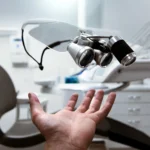The world has witnessed transformative progress, in the field of medicine, especially when it comes to diseases and their diagnosis, prevention, and treatment. It is through the power of pharmaceutical research and innovation that we’ve been able to enhance patient outcomes and introduce life-saving drugs.
Explore Exciting Career Opportunities With A Master’s Degree in Pharmacy
Related Topics (Sponsored Ads):

A frequently asked question is whether a master’s degree in Pharmacy can lead to a career as a pharmacist. For those in Europe and several other countries, a 5-year MPharm is a gateway into a career as a licensed pharmacist. However, in the US, becoming a licensed pharmacist requires a Doctor of Pharmacy (PharmD) degree and passing the North American Pharmacist Licensure Examination (NAPLEX), as well as corresponding state license examinations. Some candidates further sharpen their skills by pursuing clinical residencies.
However, don’t despair if your heart is set on the pharmaceutical industry but a PharmD degree seems out of reach. The industry encompasses more than just patient care and drug administration; it opens doors for careers in testing, researching, and producing new medications or treatments.
In pursuit of a research-oriented career in pharmaceuticals, a Master’s degree in Pharmaceutical Sciences and Pharmacy can be your stepping-stone.
Here are some intriguing degree options:
- Pharmaceutical Science MS: For those fascinated by drug administration and the utilization of therapeutics, this master’s degree aims at honing skills to understand how a drug’s chemical and physical properties affect its action. It leads to career paths like pharmaceutical scientists, among others.
- Master’s in Pharmacology: Ideal for students interested in the study of drug action, this degree focuses on how living systems react to and utilize drugs, laying the foundation for jobs like laboratory technicians, researchers, and scientists.
- Biotechnology MS: This program suits students desiring to develop skills required in the pharmaceutical industry. It allows for specialization, with courses like manufacturing and quality operations, pharmaceutical technologies, and regulatory science, among others. Graduates can pursue roles such as medical scientists, biotechnologists, or process development scientists.
- Medicinal Chemistry MS: Centering on bioorganic chemistry, synthetic organic chemistry, pharmacology, and analytical chemistry, this degree provides the skills to formulate, advance, and analyze drug compounds, leading to job roles like material scientists and chemists.
- Biomedical Science MS: Providing a holistic overview of the field, this degree offers techniques applicable across various disciplines. Some of the careers it opens include senior medicinal chemist, senior medical writer, senior clinical research associate, biomedical scientist, and biomedical laboratory technician.
Embarking on a career in the pharmaceutical industry presents multiple pathways, guided by your interest and professional aspirations. Picking a program that enriches you with the necessary techniques, skills, and knowledge to advance in your discipline is crucial. For instance, the Department of Pharmaceutical Sciences, Bouve College of Health Sciences in Northeastern offers pragmatic training, preparing students for the professional world.
Situated in the heart of Boston’s pharmaceutical and biotech hub, students gain invaluable industry experience, working alongside renowned researchers in prestigious biotechnology and pharmaceutical companies. The journey to becoming a pharmaceutical professional is indeed a thrilling and rewarding one.









